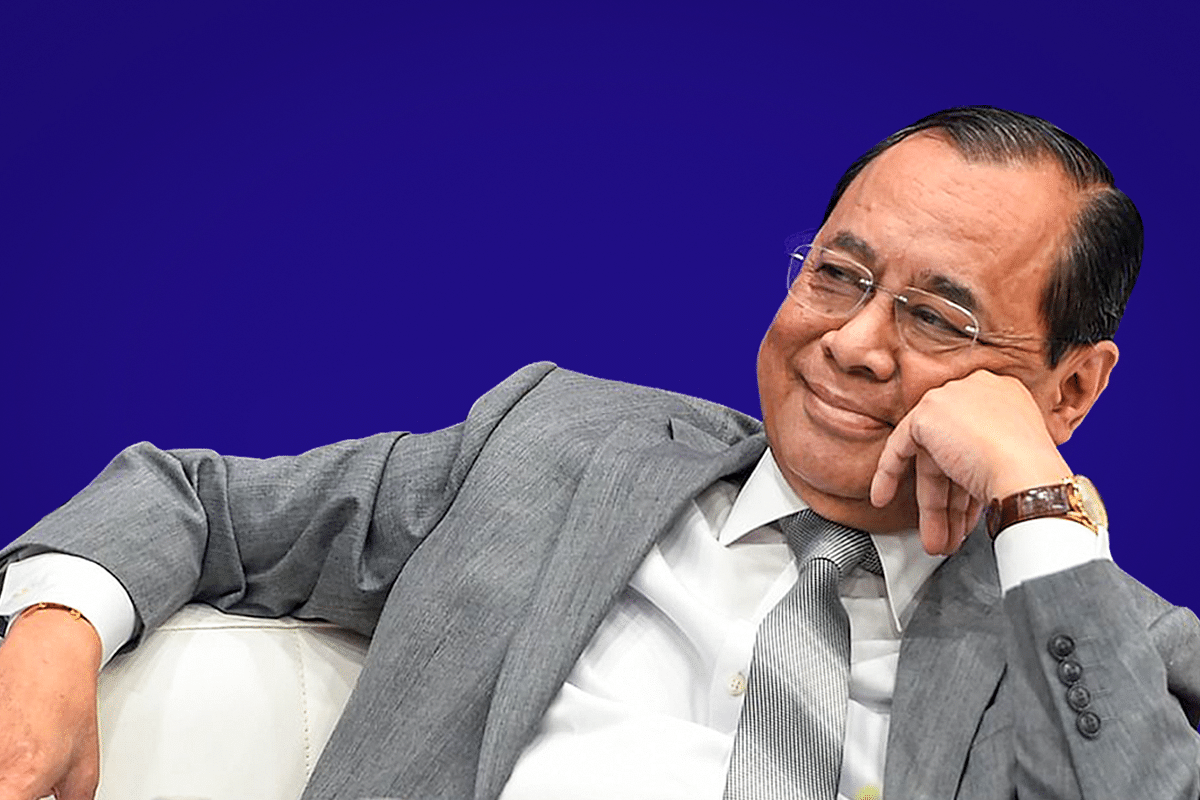Politics
Gogoi Exposes The Lutyens Lobby: Big Ticket Lawyers Compromising Judicial Independence
- Ex-CJI Gogoi has shed light on the corruption that only lawyers can facilitate.
- We need to debate this when we talk about fixing the judicial system.

Former chief justice and Rajya Sabha member Ranjan Gogoi.
Maybe, just maybe, the nomination of former chief justice of India (CJI) Ranjan Gogoi to the Rajya Sabha will finally break the Code of Omerta that prevented judges from talking about corruption and the consequent loss of independence. Hopefully, if this conversation gathers steam, we might even see some reforms in the judiciary.
Under attack from the Lutyens lobby for accepting the nomination so soon after retiring as CJI, Gogoi came out all guns blazing to throw light on the extraordinary powers wielded over judges by a few influential lawyers.
He is quoted in The Times of India as saying,
Gogoi has been under attack precisely because some of the decisions taken by multi-judge benches when he was CJI were disliked by the Lutyens “lobby”. These included the Ram Mandir verdict and the Rafale judgement.
Earlier, his predecessor Dipak Misra also came under attack due to the judge B H Loya verdict, where Congress’ high-priced legal mind, Kapil Sibal, went so far as to seek his impeachment. The “lobby” wanted the judiciary to probe the unexpected death of CBI special judge Loya only because he had been hearing the case against Amit Shah, then Bharatiya Janata Party president. A three-judge bench headed by Misra said that there was nothing suspicious in the death of judge Loya.
Gogoi’s references to the lawyer “lobby” were indirectly echoed by his former colleague Justice J Chelameswar, who hinted that lawyers charging fees of upto Rs 1 crore never really made any issue of judicial corruption.
In an interview to The Economic Times in 2018, Chelameswar was asked about the state of judicial corruption in India and he answered:
Both Verma and Bharucha were former CJIs, serving during 1997-98 and 2001-02 respectively.
It is interesting that in 2010, Shanti Bhushan, father of PIL-ster Prashant Bhushan, told an open court that as many as eight of 16 former CJIs were corrupt. He gave the bench a closed envelope with their names. But neither the court nor Bhusham himself did much about it beyond talk.
Now consider what impact this could have on judicial independence: if judges believe some powerful lawyers have the goods on them, why would they not kowtow to those same lawyers who wield enormous powers over the judiciary?
The simple truth when we talk about judicial corruption is this: for every hand that receives a reward from interested parties for delivering a particular kind of judgement, there must be at least one lawyer and one client who must be paying for it.
In short, two of the three parties involved in corruption are not judges themselves. So talking about judicial corruption without talking about the “Rs 1 crore” lawyers is tantamount to evading the obvious. It is the middlemen lawyers who enable corruption.
In any case, no one bothers to ask why some lawyers can get paid as much as Rs 1 crore per appearance unless the money is also partly about using their “influence” with judges. We can’t generalise here, but high-priced lawyers are paid mind-boggling fees not only for their legal expertise, but for something that is an undefinable “extra”. (Read here about what high-priced lawyers charge for appearing in courts)
When lawyers like Prashant Bhushan launch public interest litigations (PILs) at the drop of a hat, they are usually following a political agenda and not just fighting for those left behind by the legal system.
And when they do not get a judgement they want, they go about defaming those judges who fail to oblige them. Not surprisingly, The Caravan, a darling of the Left-Lutyens lobby, wrote a piece titled “Sealed and Delivered: Ranjan Gogoi’s gifts to the government”, soon after Gogoi retired.
Prashant Bhushan, tweeting on CJI Gogoi’s tenure last November, said:
Much later, Bhushan quoted an article critical of Gogoi by Gautam Bhatia approvingly: “Read Bhatia: ‘Under CJI Gogoi's tenure, the SC has gone from an institution that was formally committed to the protection of individual rights as its primary task, to one that speaks the language of the executive, and has become indistinguishable from it’.”
Later, he quotes former Supreme Court judge Markandey Katju to suggest that CJI Gogoi was a “blot on the judiciary…”.
No one can vouch for the integrity (or lack of it) of ex-CJI Gogoi, for we do not know enough about him. But one thing is clear: he has shone a light on the corruption that only lawyers can facilitate. We need to debate this when we talk about fixing the judicial system.
Support Swarajya's 50 Ground Reports Project & Sponsor A Story
Every general election Swarajya does a 50 ground reports project.
Aimed only at serious readers and those who appreciate the nuances of political undercurrents, the project provides a sense of India's electoral landscape. As you know, these reports are produced after considerable investment of travel, time and effort on the ground.
This time too we've kicked off the project in style and have covered over 30 constituencies already. If you're someone who appreciates such work and have enjoyed our coverage please consider sponsoring a ground report for just Rs 2999 to Rs 19,999 - it goes a long way in helping us produce more quality reportage.
You can also back this project by becoming a subscriber for as little as Rs 999 - so do click on this links and choose a plan that suits you and back us.
Click below to contribute.
Latest